Coursera Plus - Get Unlimited Access to 7,000+ Online Courses
Coursera Plus - Get Unlimited Access to 7,000+ Online Courses
Coursera Plus - Get Unlimited Access to 7,000+ Online Courses
Michael Lewis MasterClass Review: Worth for Learning Storytelling?
Disclaimer: This post is NOT sponsored. Some product links are affiliate links which means if you buy through those links, you won’t pay anything extra and we’ll also receive a small commission on a purchase.
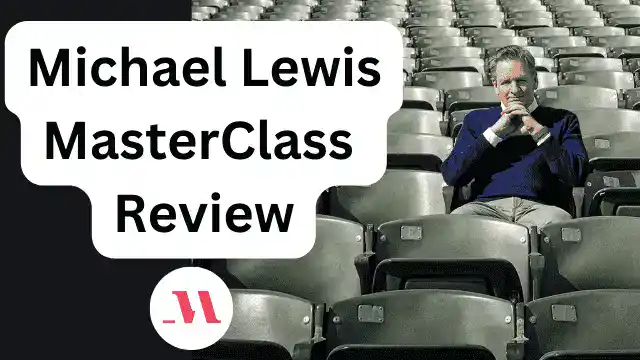
The Micheal Lewis storytelling MasterClass, “Tell a Great Story”, is all about what the title says – mastering the art of storytelling.
I have never read non-fiction because I find it dry, but I watched the film adaptation of Moneyball. It made me curious about the author of the book.
Am I glad I took the class? Definitely. Why? Read on to find out.
Who is Michael Lewis & Why Should You Learn from Him?
Michael Lewis is a bestselling author of non-fiction including Moneyball, The Blind Side, and The Premonition.
What makes him unique is that he can explain the most complex concepts in the simplest terms in his books while keeping the stories interesting; this is a lost art as far as I am concerned.
Therefore, watching his MasterClass is time well spent, don’t you agree?
If you haven’t watched his MasterClass trailer yet, here it is for you.
Becoming a Better Storyteller
The Michael Lewis MasterClass trailer flames our anticipation and the series lives up to the hype.
He is very clear from the get-go that his focus is on helping us tell a better story not just write a book.
Frankly, his teachings are beneficial to fiction and non-fiction writers despite the examples used being from non-fiction. Ready to take a closer look?
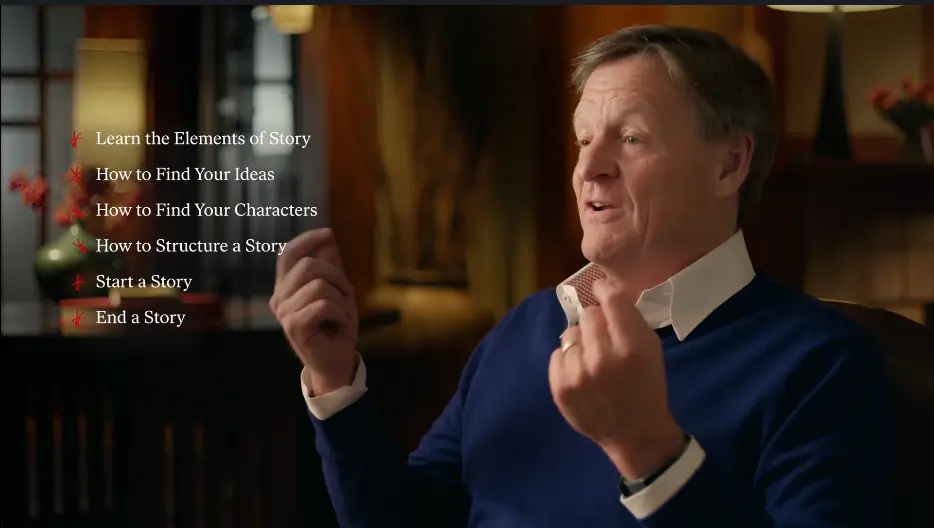
How are Story Ideas Born?
Ideas for non-fiction come from observations and experiences. Seek new experiences to get ideas.
Lewis tells us how his strange experiences while working on Wall Street gave rise to Liar’s Poker. He also explains how his curiosity led him to the idea that resulted in Moneyball.
In short, you learn that keeping your eyes and ears open can lead to interesting stories.
Your Voice
Everybody’s writing voice is different. Finding it early can help you write better. Michael provides great advice for doing that.
He also dives into how using live audiences (unsuspecting friends) to sound out your ideas and stories can help improve your writing and voice.
You also learn that being in your personal bubble makes it hard to see what’s wrong with your writing.
The Reason Stories are Captivating
Michael talks about why fixating on characters that others never would have thought of is the best thing to do.
Using them to tell your story keeps readers interested. Lewis also provides tips and suggestions to bring those characters to life and get the readers invested in them.
Lewis is adamant that you should understand the character you chose to write about without making them feel that they are being interrogated. He discusses making them open up to you instead of clamming up. His therapist analogy is quite fitting. Be sure to listen carefully.
Structuring a Story
Lewis speaks about how you can take advantage of people’s perception of reality and write to show them the right way to perceive it. You learn about his structuring process (his color-coded index cards are awesome; it’s a neat trick).
He helps you understand parallel plot structure and that every trick and technique available to fiction writers can be used by non-fiction writers, too. The only difference? You can’t make things up.
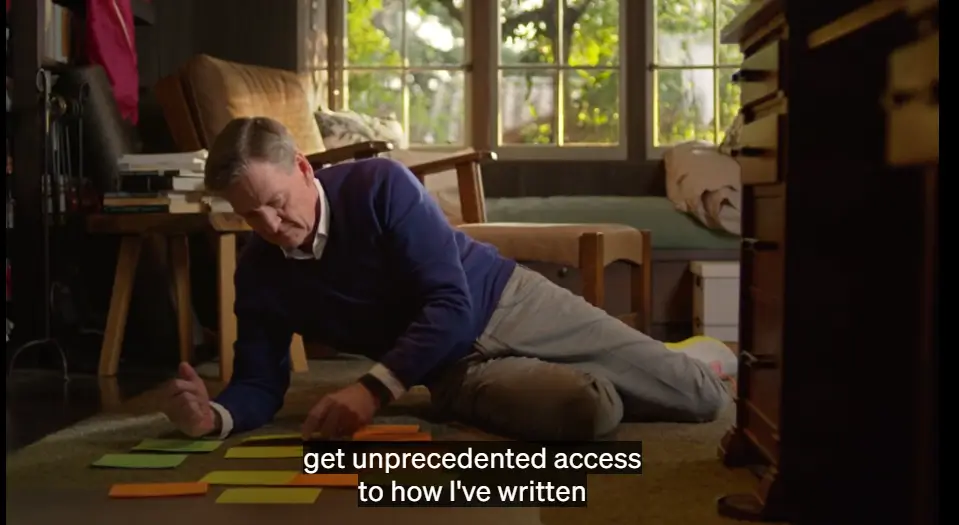
You also grasp why even a bad story structure is preferable to no structure. Lewis’ explanation of the concept ‘Kill your Darlings’ shines s spotlight on the necessary pain every author goes through. I found this class valuable for many reasons. But the most significant one is that Michael teaches you to look past how real-life characters look at themselves and write what you perceive. As an author, you have that right!

He asked Charity’s permission to walk around unsupervised in her house to know who really was. We can’t do that, can we? At least, not unless you are disarmingly charming like him or a master of manipulation like Hannibal.
The message is that we need to walk in their shoes and get to know details they never would have thought to share.
The sections with Billy Beane and Charity Dean are awesome because they show how well Lewis has captured their personalities. You, too, learn to do that through this class.
Lewis also explains how knowing where to start and what the ending is before starting to write can help tell a coherent story.
Visualization
Merely knowing what happened can’t help you write in a way that makes the readers see it too.
You have to be able to describe the scenario in a manner that allows readers to get a sense of being there.
Michael explains how to do that with his anecdote about driving to the morgue with Charity Dean (I sympathize with that poor, traumatized guard).
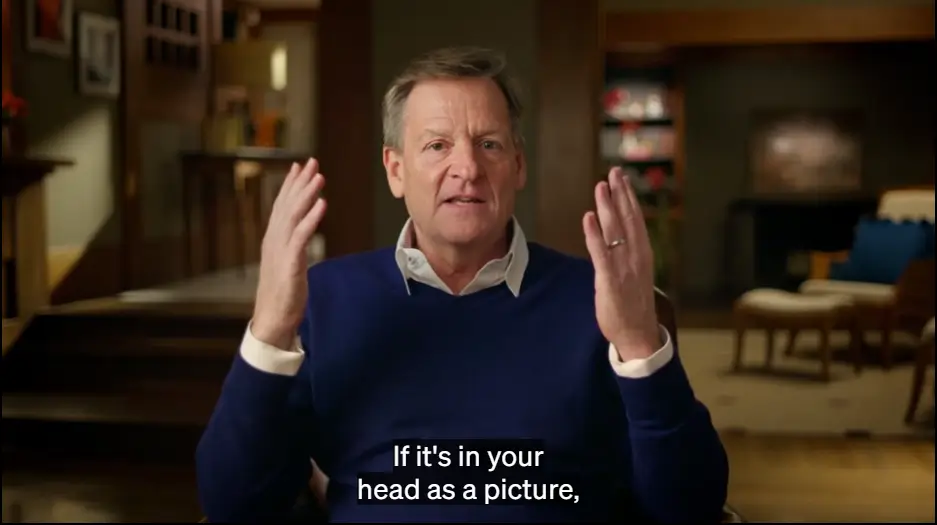
Completing What You Started
Throughout the class, Lewis uses examples from Moneyball, The Blind Side, The Big Short, Going Infinite, and The Premonition. They slowly help you piece together the process of masterful storytelling.
Now that you have an idea, one would think that’s it. Unfortunately, most of you would go from ‘I am gonna do this’ to ‘Why am I doing this?’ within days or months. Lewis provides tips to avoid that mishap.
He also emphasizes writing the truth as opposed to indulging the audience or pacifying the critics. Kaidith (it is what it is). You also learn about his editing and rewriting process.
The beauty of this class is that you don’t have to follow his methods. Just understand what he conveys and use your unique way of writing to create a bestseller. And, I will never reveal his final advice. But, I will say this: it was the icing on the cake and is effective.
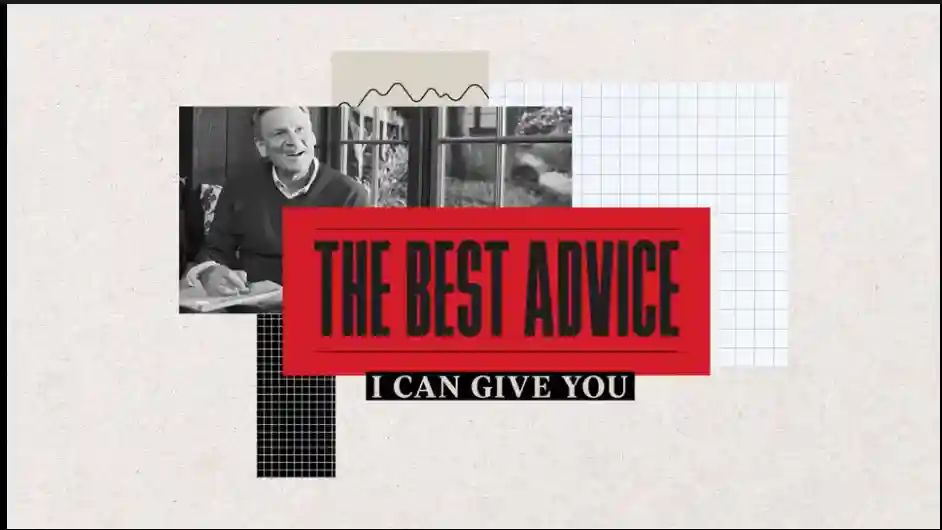
Michael Lewis MasterClass Cost

Purchasing only the class you want isn’t possible on MasterClass. You have to subscribe to one of the membership plans that provide access to all courses on the site. The Standard, Plus, and Premium plans cost $120, $180, and $240 per annum respectively. They are on sale right now (40% off); so, this would be a great time to subscribe if you have reservations about the pricing plans.
You can watch the classes of Amy Tan, David Baldacci, Joyce Carol Oates, and many more masters of their crafts if you subscribe. So, subscribe, learn, and become a master. Happy learning!
Final Verdict: Is The Michael Lewis MasterClass Worth It?
Yes, Michael Lewis’s “Tell a Great Story” masterclass is fabulous. The thing most writers struggle with is communicating the story they have in mind. I am not saying they can’t write. I simply mean that they don’t have a clear idea of how to hook the readers and keep them engaged. As this Michael Lewis MasterClass review has shown, Lewis can help with that challenge.
FAQs
1. Is Michael Lewis MasterClass free?
No, you have to subscribe to one of the membership plans to access the class. The platform provides a 30-day money-back guarantee (not that you’ll need it). So, don’t hesitate to subscribe.
2. What is the duration of the MasterClass Michael Lewis original series?
The series is 2 hours and 20 minutes long and has three main episodes and a bonus episode. The class is extremely binge-worthy, and you walk away with a clear idea of the story structuring process.
3. Can I download Michael Lewis MasterClass?
You can download the class for offline viewing if you subscribe to the Plus or the Premium plan. The Standard plan doesn’t provide you with this option.
4. What is unique about the MasterClass storytelling Michael Lewis series?
Besides the excerpts from the books that were adapted into Oscar-nominated films, Michael Lewis’ unique way of perceiving people helps you think in ways you never would have imagined before. The 10-minute bonus episode shows Lewis in action teaching how to connect with people on an emotional level. So, I would say, the series is quite unique.


